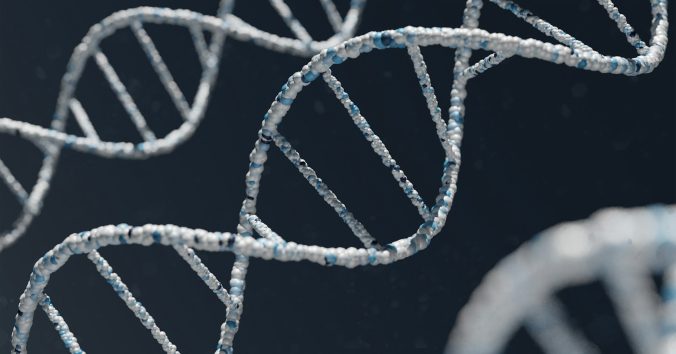As patients, we are used to providing samples so that the physician can make a diagnosis and prognosis and choose treatment. But it is becoming more common for physicians to also order genomic tests in order to make the diagnosis, prognosis and treatment even more individualized. Even common diseases such as cardiovascular disease, diabetes and depression can become subject to this approach, where information about the patient’s DNA is obtained together with other samples.
As genomic medicine becomes more common, physicians in a variety of specialties need to know more about genetics and genomics. Do physicians who are not specialists in clinical genetics have sufficient knowledge to be able to order relevant tests, interpret test results and talk to patients? How do they prefer to work with genomic medicine? What support do they need and how do they want to learn more? These and other questions were investigated in a survey study aimed at Swedish specialist physicians in, among others, oncology, gynaecology and obstetrics, and general paediatrics; clinical geneticists were excluded.
The study suggests that Swedish physicians want to learn more about genomic medicine, that they are currently learning more, but that the level of knowledge may be low. The physicians in the study expressed a great need for support in matters related to genomic medicine. Although some physicians preferred to refer patients who could be considered for genomic medicine to regional genetics services, a majority preferred to manage the patients themselves, provided that they received good support. What they mainly wanted help with was choosing suitable tests and interpreting test results. The majority of the physicians reported that better knowledge of genomic medicine would change the way they work as physicians. They seemed to prefer to learn more about genomic medicine not through university courses, but through continuous education of various kinds.
In their discussion, the authors (including Joar Björk and Charlotta Ingvoldstad Malmgren) emphasize that physicians’ uncertainty about choosing suitable tests and interpreting test results is probably hampering the mainstreaming of genomic medicine today. Support and training should therefore focus particularly on these tasks. They also note that the physicians mainly requested support of a more technical nature and were less interested in learning more about ethics and communication with patients and families. They may believe that they can rely on their general competence as physicians in these areas, but genomic medicine presents physicians with particularly difficult ethical and communicative challenges, the authors point out. Genetic counselors may therefore have important functions in genomic medicine.
More specific results and the authors’ discussion can be found here: Self-assessed knowledge of genomic medicine among non-genetics physicians – results from a nationwide Swedish survey.
The authors conclude that Swedish physicians have already taken important steps towards making genomic medicine common, but that mainstreaming requires continuous educational efforts, support from regional genetics services and improved guidelines for how to collaborate.

Written by…
Pär Segerdahl, Associate Professor at the Centre for Research Ethics & Bioethics and editor of the Ethics Blog.
Björk, J., Friedman, M., Nisselle, A. et al. Self-assessed knowledge of genomic medicine among non-genetics physicians – results from a nationwide Swedish survey. Journal of Community Genetics 16, 669–677 (2025). https://doi.org/10.1007/s12687-025-00818-y
We have a clinical perspective



